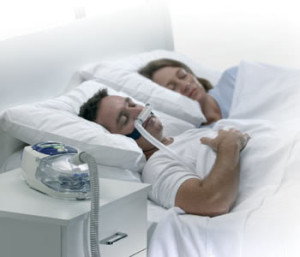 Life Insurance with Sleep Apnea
Life Insurance with Sleep Apnea
Sleep apnea affects more than 18 million people in the US, according to the National Sleep Foundation. It can cause serious health issues if left untreated. Underwriting life insurance with sleep apnea can be tricky, with health ratings ranging from the best available to being declined coverage altogether. Life insurance companies are very specific about what they look for in applicants with sleep apnea. If you are looking for life insurance with sleep apnea, it is important to work with an agent who knows which companies will rate your sleep apnea most favorably. Here is what you need to know about life insurance with sleep apnea.
What is Sleep Apnea?
Sleep apnea is a serious sleep disorder that occurs when a person’s breathing is disrupted during sleep. Sleep apnea can cause a person to stop breathing repeatedly during sleep, which can deprive their brain, heart and other vital parts of the body adequate oxygen. The main risk factors for sleep apnea include excess weight, being male, being older, smoking, use of alcohol or sedatives, family history and nasal obstruction (deviated septum, allergies). If untreated, sleep apnea can lead to more serious health issues such as high blood pressure, stroke, heart disease, depression and poor performance in everyday activities. Sleep apnea can be treated in several different ways. In some cases, sleep apnea can be treated simply by losing weight, quitting smoking or avoiding alcohol and sleeping pills. In more serious cases, a continuous positive airway pressure (CPAP) device can be worn to deliver a continuous flow of air into the nose while sleeping. Dental devices and even surgery can also be used to treat sleep apnea.
Underwriting Sleep Apnea
The first thing you should know is that the insurance company will most likely want to review your medical records to learn more about your diagnosis and treatment. Since sleep apnea can lead to more serious health issues, the insurance company will want to determine the severity of your sleep apnea and if it is being controlled. If your doctor has suggested a sleep study to diagnose the severity of your sleep apnea and you have yet to take the study, the insurance company will most likely postpone a decision until you’ve completed a sleep study. If your sleep apnea has been diagnosed and treatment was prescribed, the insurance company will want to make sure you are following doctor’s orders with treatment. Your overall health and lifestyle risk factor control will be closely reviewed to determine if your sleep apnea is a function of poor health and lifestyle habits. In general, the insurance company is looking to determine if you are taking your sleep apnea condition seriously.
What the Insurance Company wants to Know About Your Sleep Apnea
The insurance company will need to know the answers to the following questions about your sleep apnea to help determine your health rating.
- Date of diagnosis?
- What type of sleep apnea? (obstructive, central or mixed)
- What type of treatment prescribed?
- Are you compliant with treatment?
- Date and results of last sleep study? (apnea index (AI) or respiratory or distress index (RDI)readings if available)
- Smoking history?
- Any concurrent health impairments?
- Have you had any automobile accidents related to your sleep apnea?
The answers to these questions will give the insurance company an accurate idea of the severity of your sleep apnea as well as your compliance with treatment.
What Health Rating can You Expect to Get With Sleep Apnea?
Sleep apnea is generally classified into three categories; mild, moderate or severe. Your final health rating will be determined based on the severity of your sleep apnea, compliance with treatment and all other relevant underwriting data. Here are the health ratings you could expect for each class of sleep apnea.
Mild Sleep Apnea – If you’ve been diagnosed with mild sleep apnea and you have no other complications, you can qualify for preferred rates.
Moderate Sleep Apnea – If you’ve been diagnosed with moderate sleep apnea and are compliant with treatment, you could qualify for preferred rates with some companies. If you have untreated moderate sleep apnea, you will most likely be given a substandard health rating of table 2 to 3.
Severe Sleep Apnea – If you are diagnosed with severe sleep apnea that is being treated and controlled, you could qualify for ‘standard’ rates. Severe sleep apnea that is untreated will most likely lead to a decline. Your case could be postponed until you agree to take a sleep study and start the suggested treatment.
Addressing your sleep apnea with treatment and compliance will make a huge difference in your rates and your overall health.
Getting the Best Rates for Life Insurance with Sleep Apnea
To get the best rates for life insurance with sleep apnea, it is important to work with an independent agent who can shop your case to multiple companies. Every insurance company uses its own criteria for underwriting life insurance with sleep apnea. Some companies will offer preferred rates for sleep apnea while others will not. We know which companies look at sleep apnea and other health issues most favorably. If you have sleep apnea and need life insurance, we can help. Call us today at (888) 687-9444 or email us at info@archstoneageny.com and tell us about your case. We will get you the best rate possible for life insurance with sleep apnea.
About Us
Archstone Insurance Services, LLC is an independent agency that shops over 40 of the top life insurance carriers to provide huge savings on life insurance coverage for our clients. We are happy to answer any questions you might have about any of the insurance products we offer, your planning needs or your existing coverage. Feel free to call us directly at (888) 687-9444 or email us at info@archstoneagency.com.

